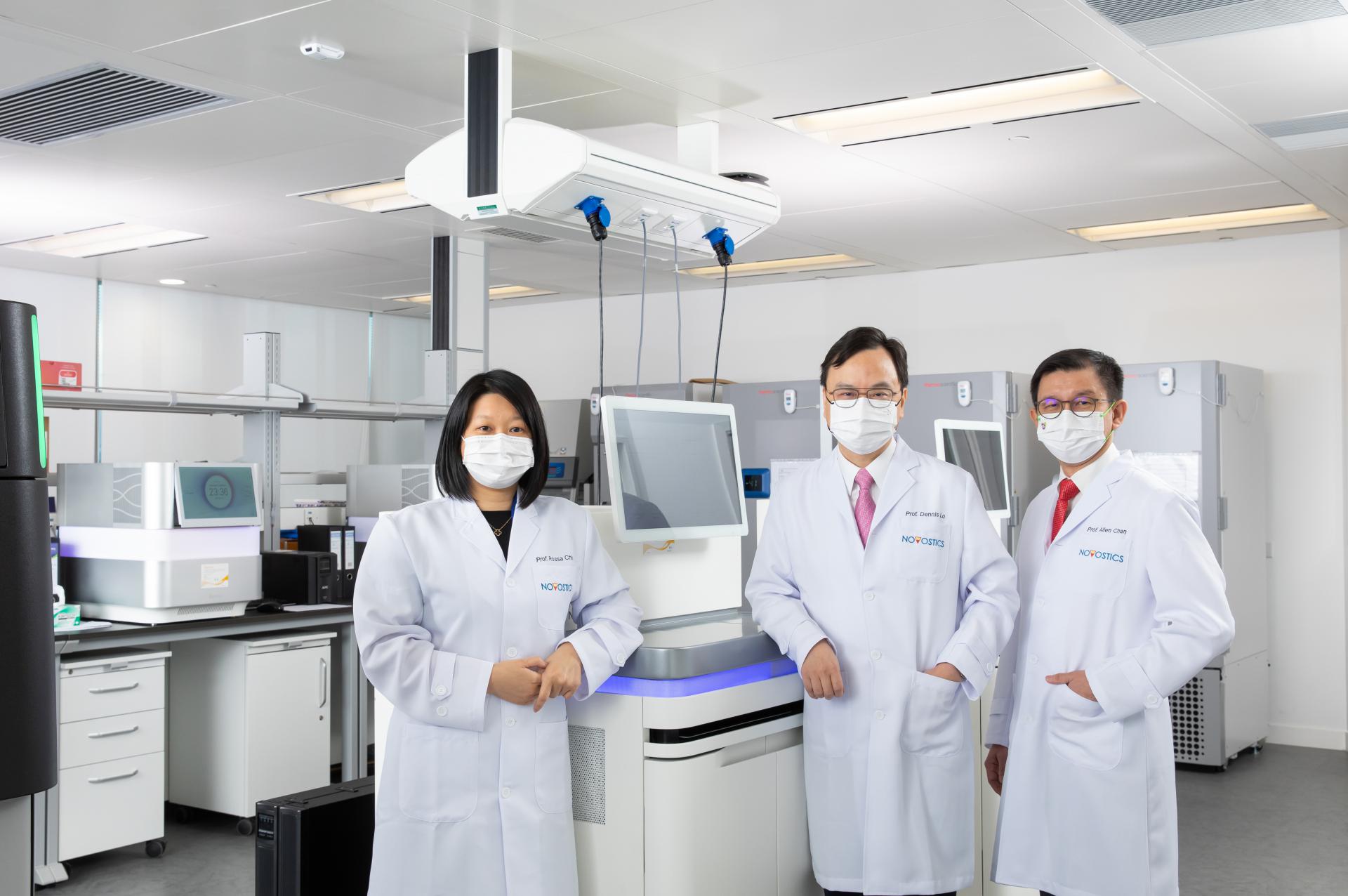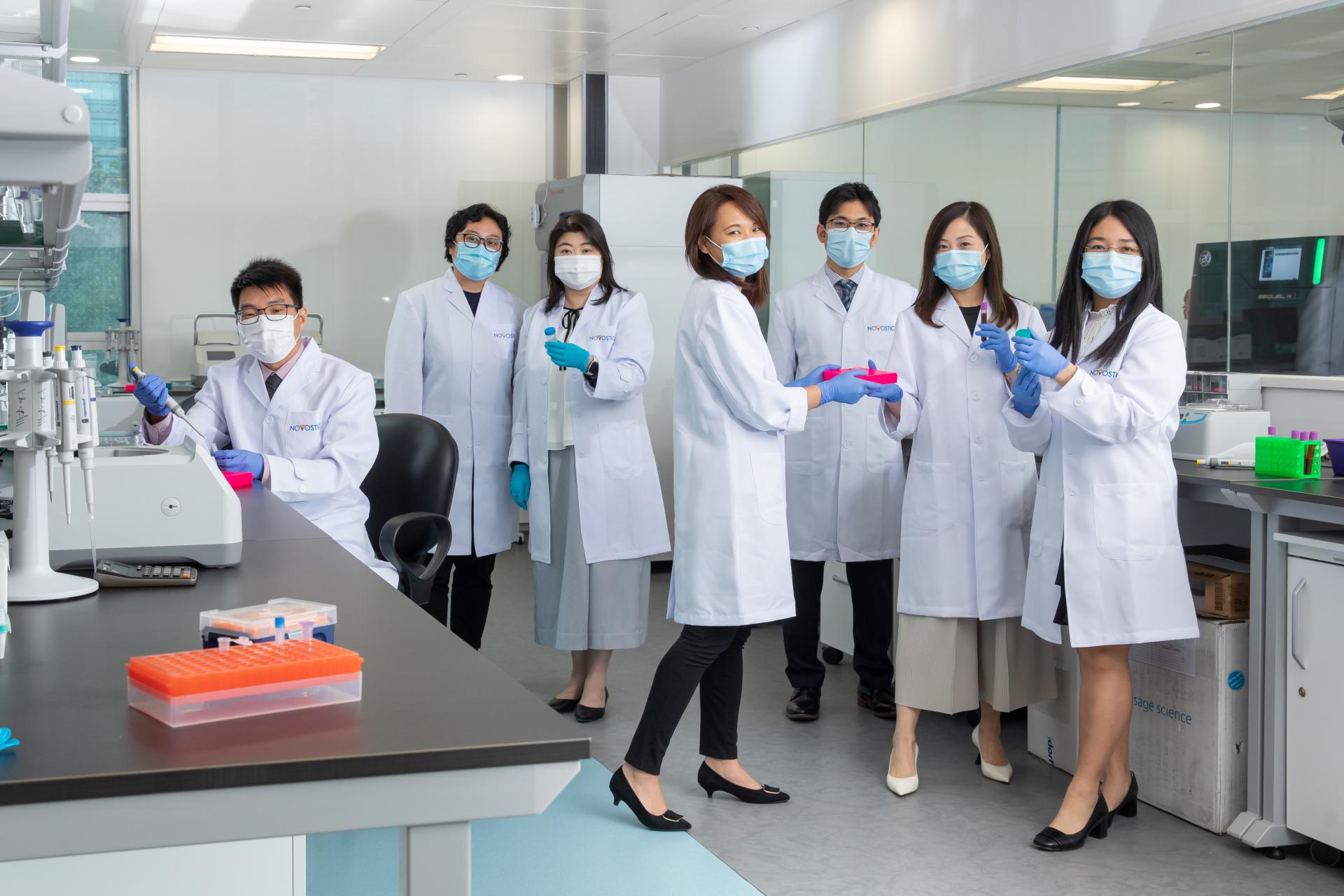Director: Prof Dennis LO
Company
Novostics will focus on the development of cutting edge diagnostics based on cell-free nucleic acids in blood and other bodily fluids, particularly around prenatal diagnosis and cancer diagnostics. These research areas will accelerate the application of liquid biopsy and promote Hong Kong as a leading molecular diagnostic centre in the world.

Media
To become the world leading molecular diagnostics centre, disseminating our research results to public and protecting intellectual properties through filing patents are the mission of Novostics. Publications have been listed on the company website: www.novostics.hk. The Nature Biotechnology journal each year would name the Top 20 Translational Researchers by examining the total patents (European and US) granted and the H-index (i.e. a measurement of impact for publications).
1) Prof. Dennis LO, Prof. Rossa CHIU, Prof. Allen CHAN have been named “Top 20 Translational Researchers of 2020”. It is the fifth consecutive year for Prof. Lo to receive this honor.
2) Prof. Peiyong JIANG was named “Top 20 Translational Researchers of 2019”.
Furthermore, in recognition of Prof. Dennis Lo and the team’s contributions to the healthcare industry, Prof. Dennis Lo has received numerous local and international honours and awards. Below please find the most recent awards:
2019 The Fudan-Zhongzhi Science Award
2021 Breakthrough Prize in Life Sciences
2021 Royal Medal
2021 ESHG Mendel Award
2021-2022 Healthcare Award – The Most Influential Chinese by Phoenix TV
2022 ISPD Pioneer Award
Key research area
-
1
With the experience in developing prenatal testing of fetal chromosomal disorders, the centre extends the work to single-gene diseases and other pregnancy-associated conditions. A combination of genomic, epigenomic, trancriptomic and fragmentomic technologies are being developed to tackle bottlenecks in cancer diagnostics and investigate the tissue origins of malignancy by circulating nucleic acid analysis, particularly for cancer types prevalent in Hong Kong, mainland China and Asia.























